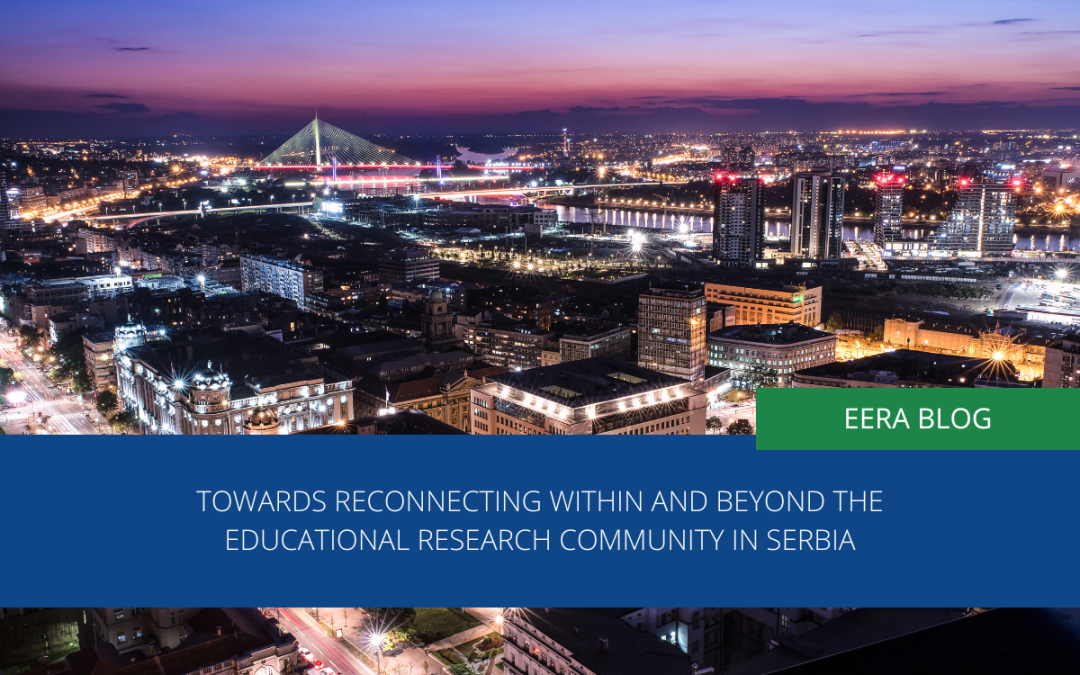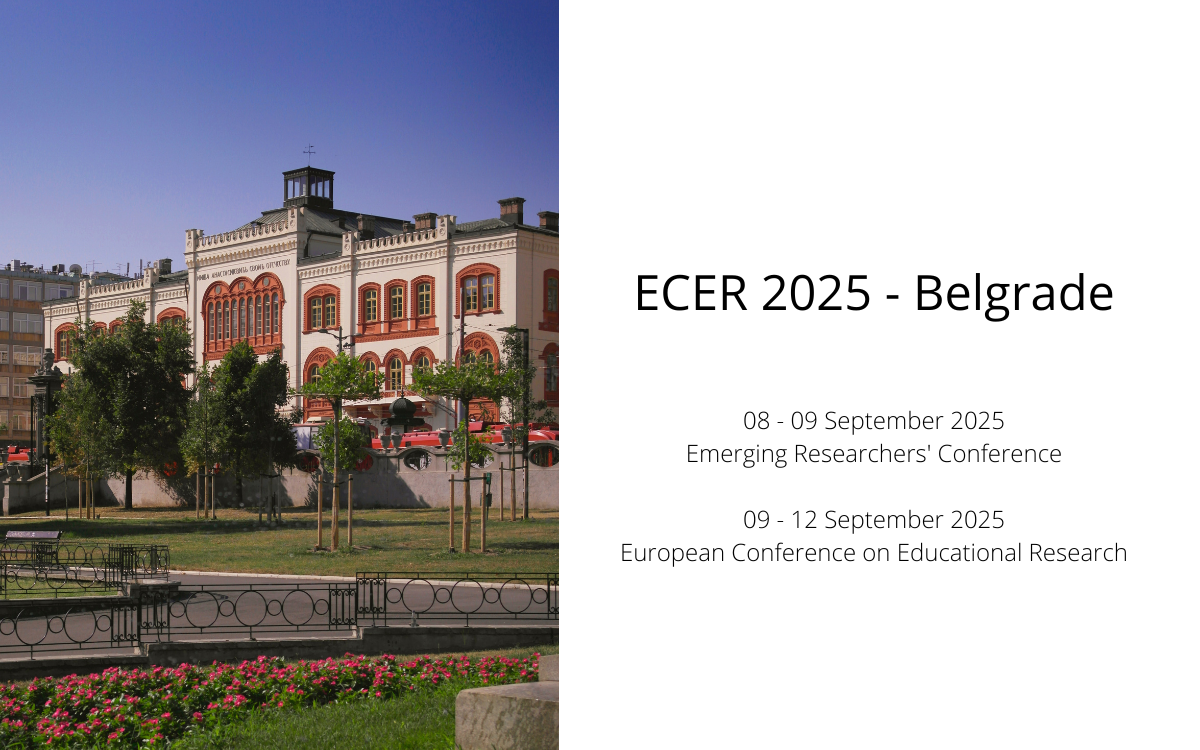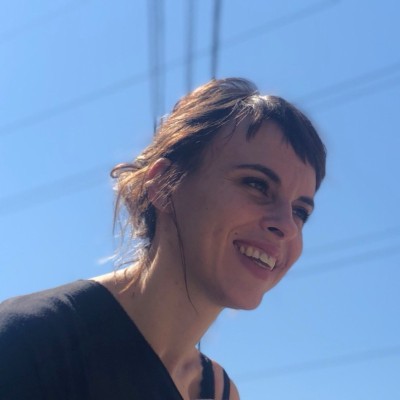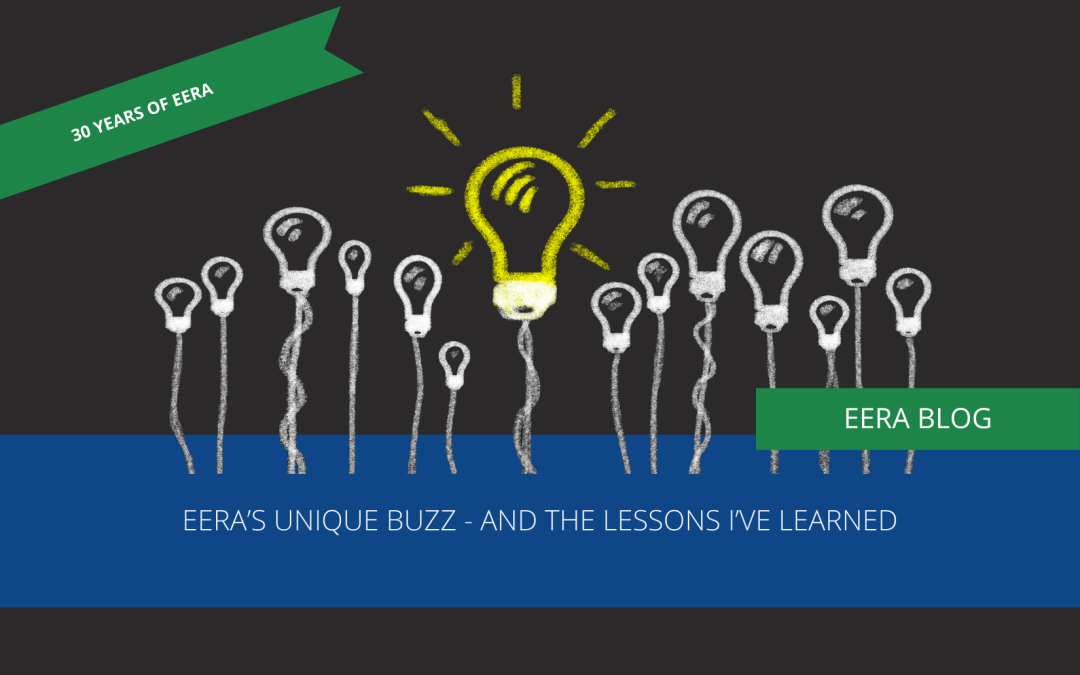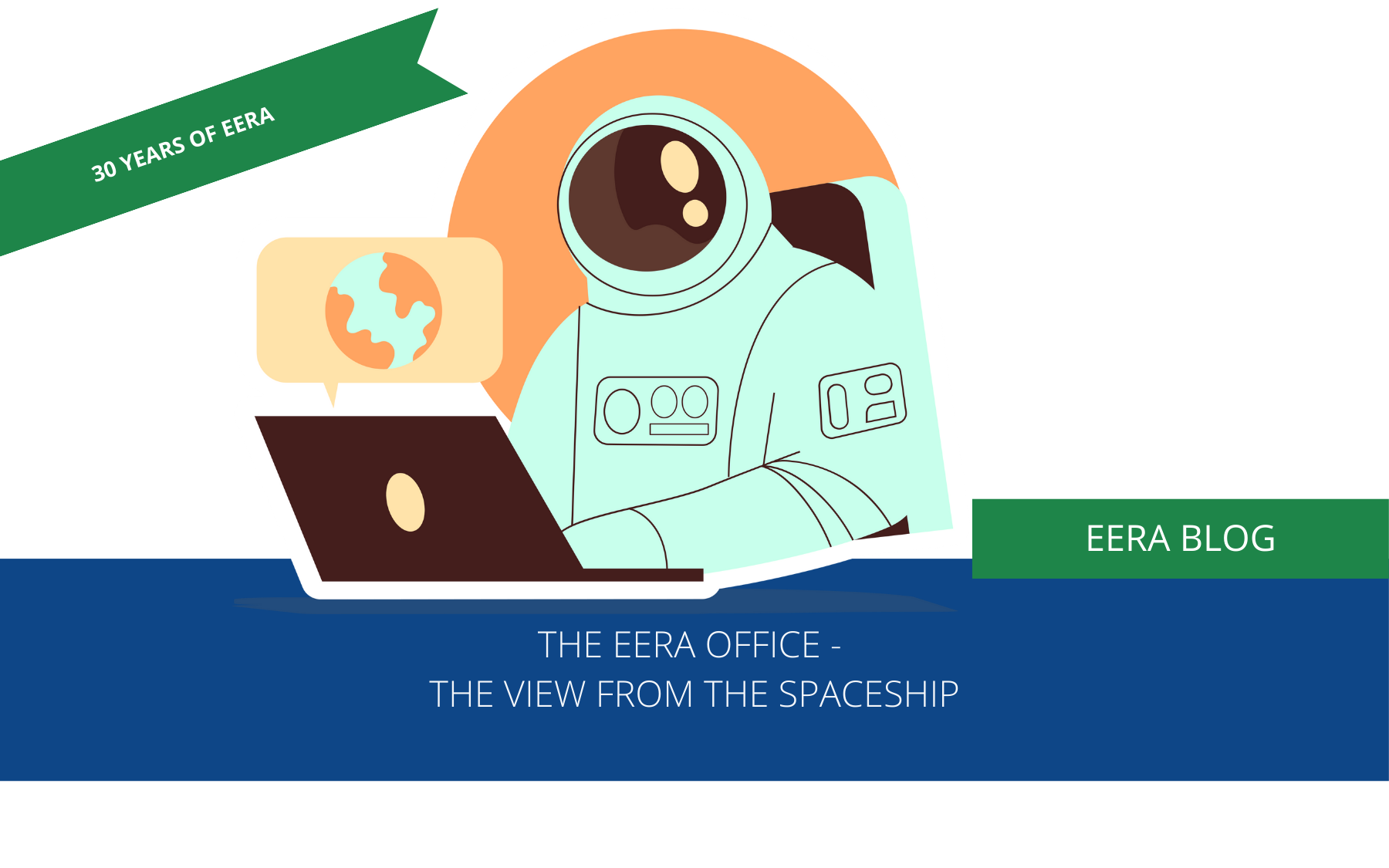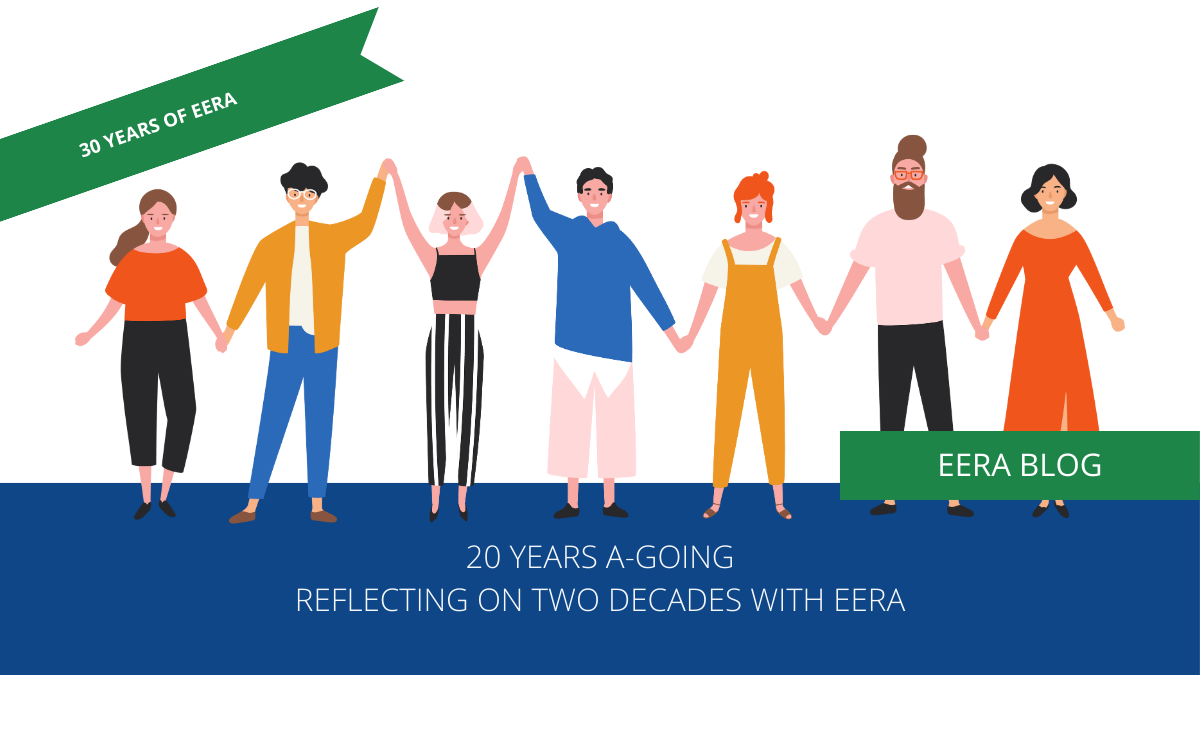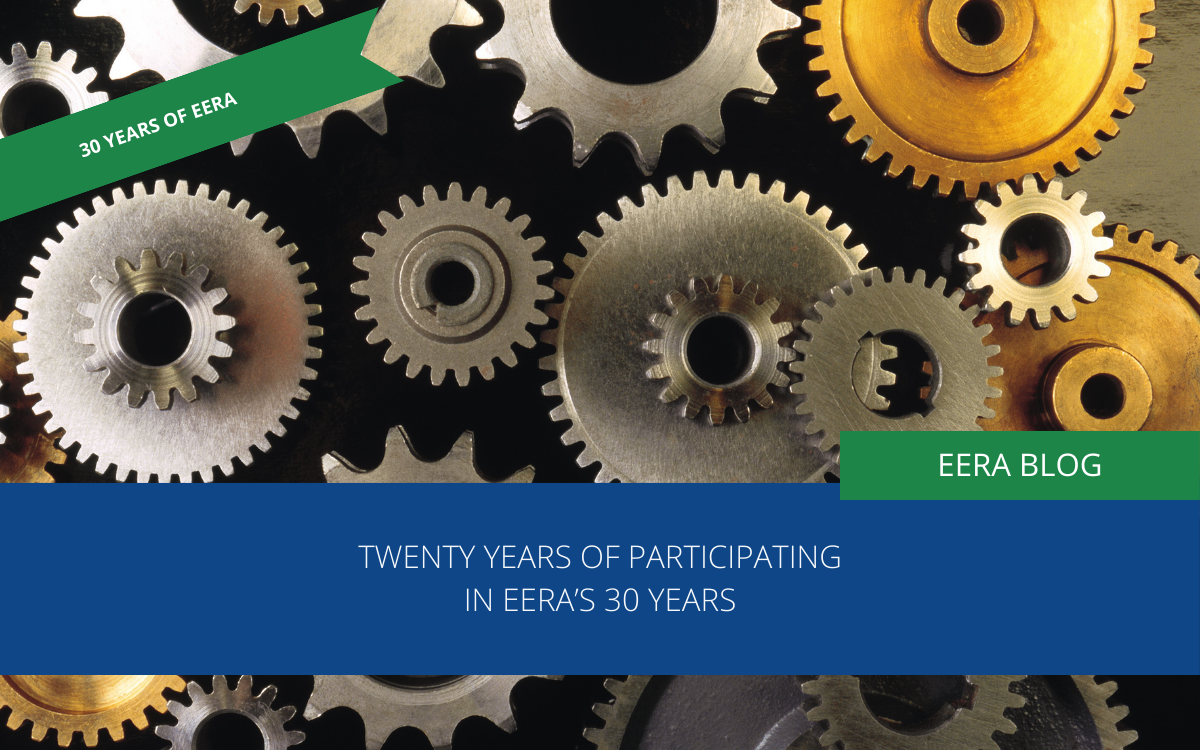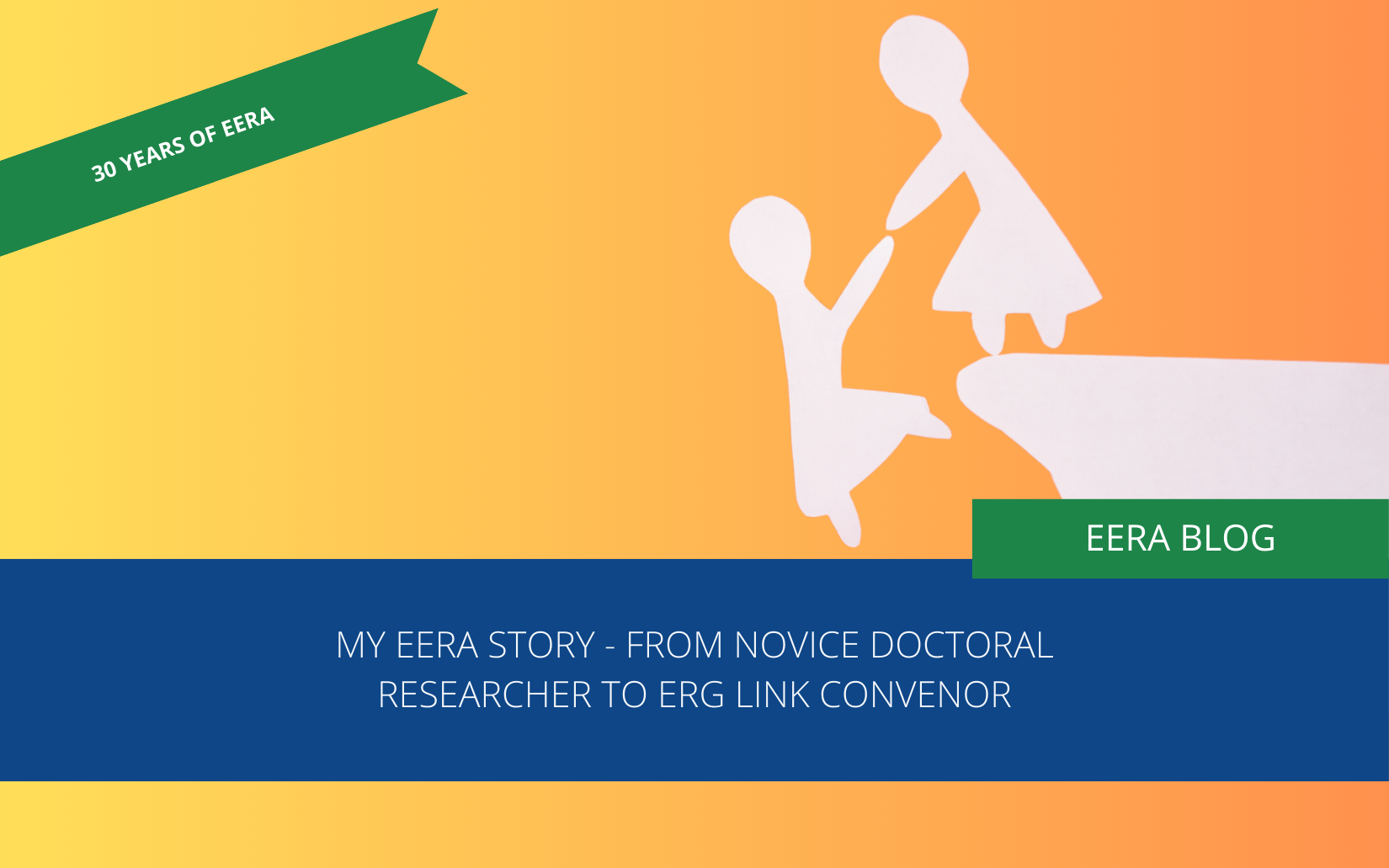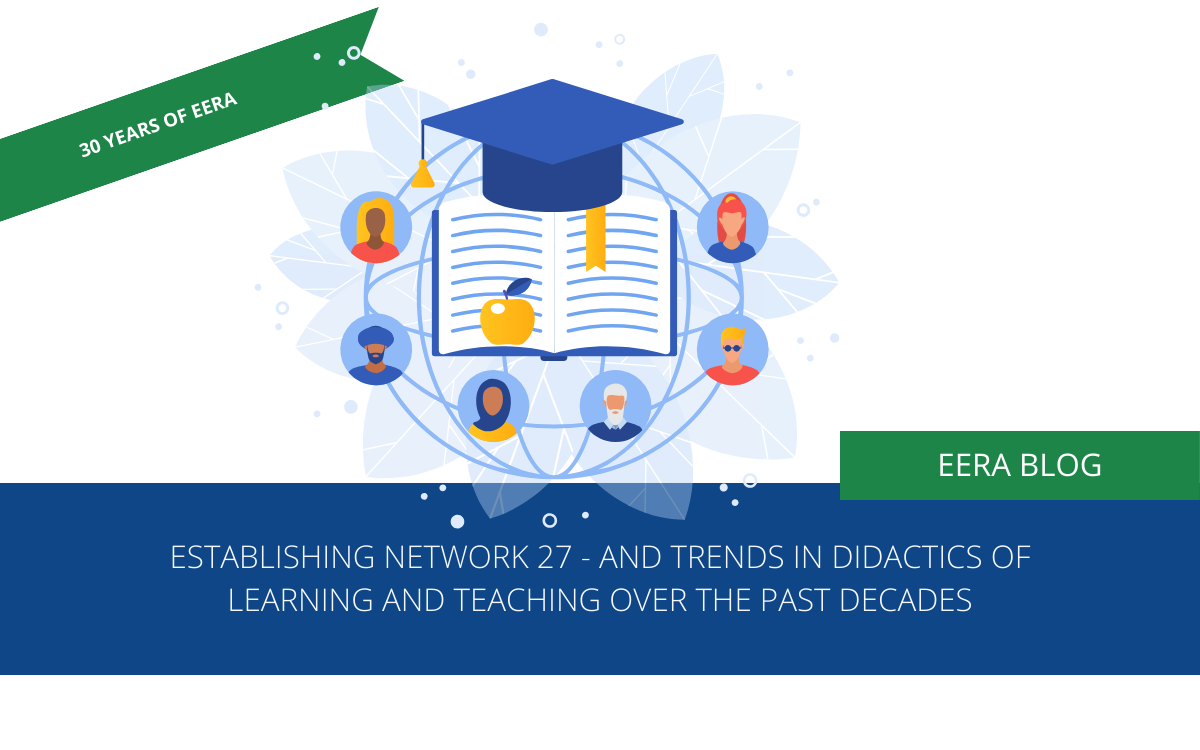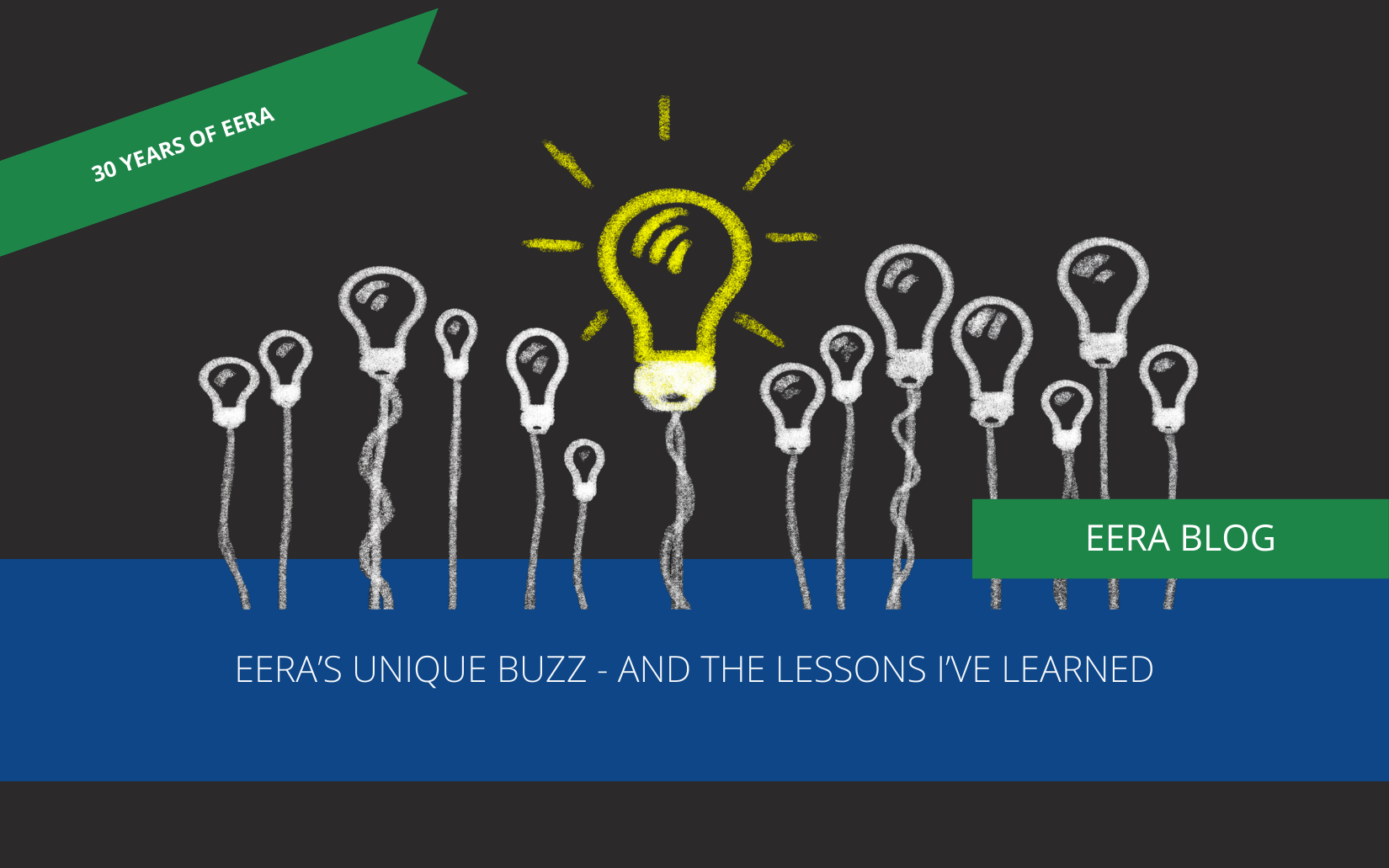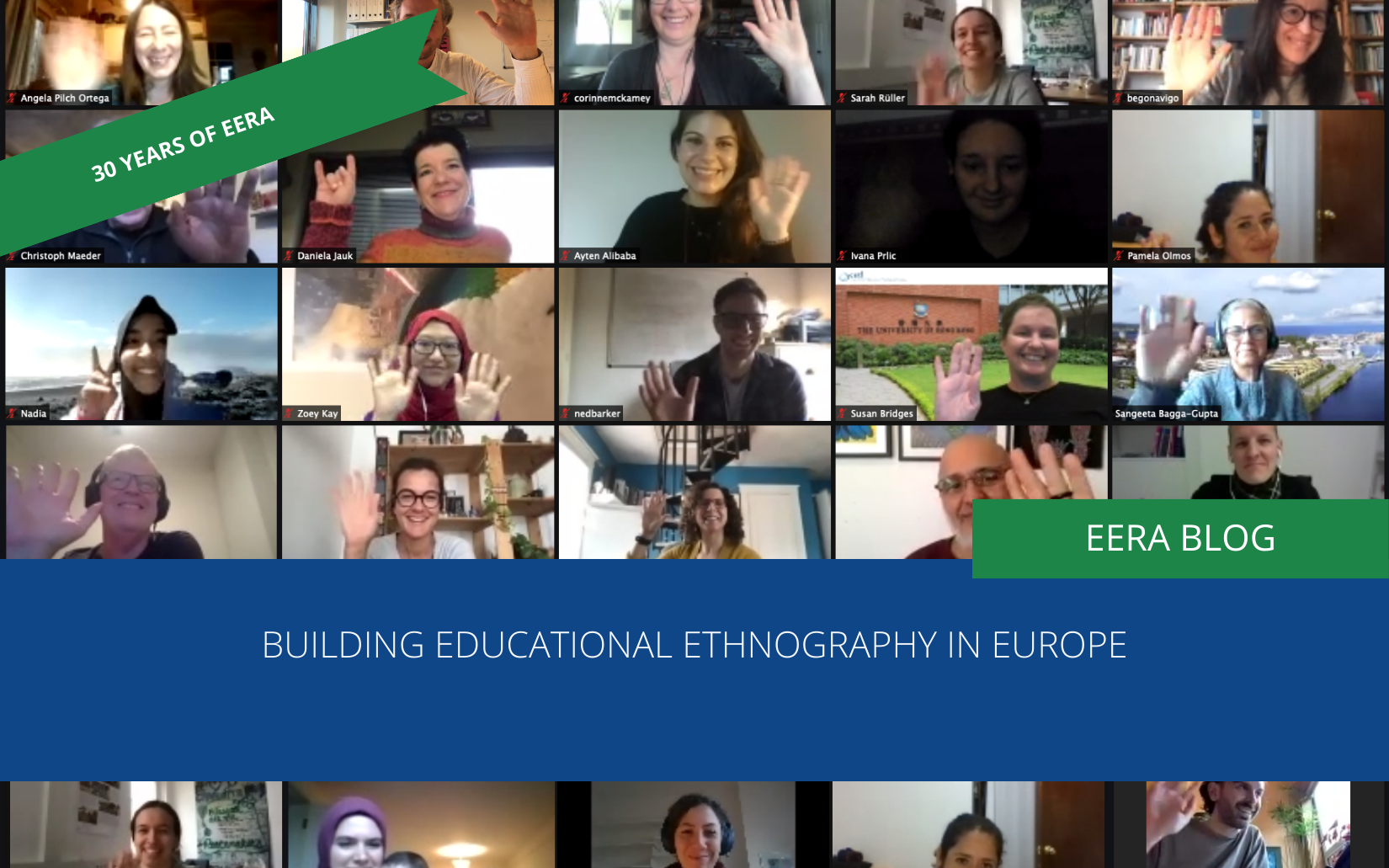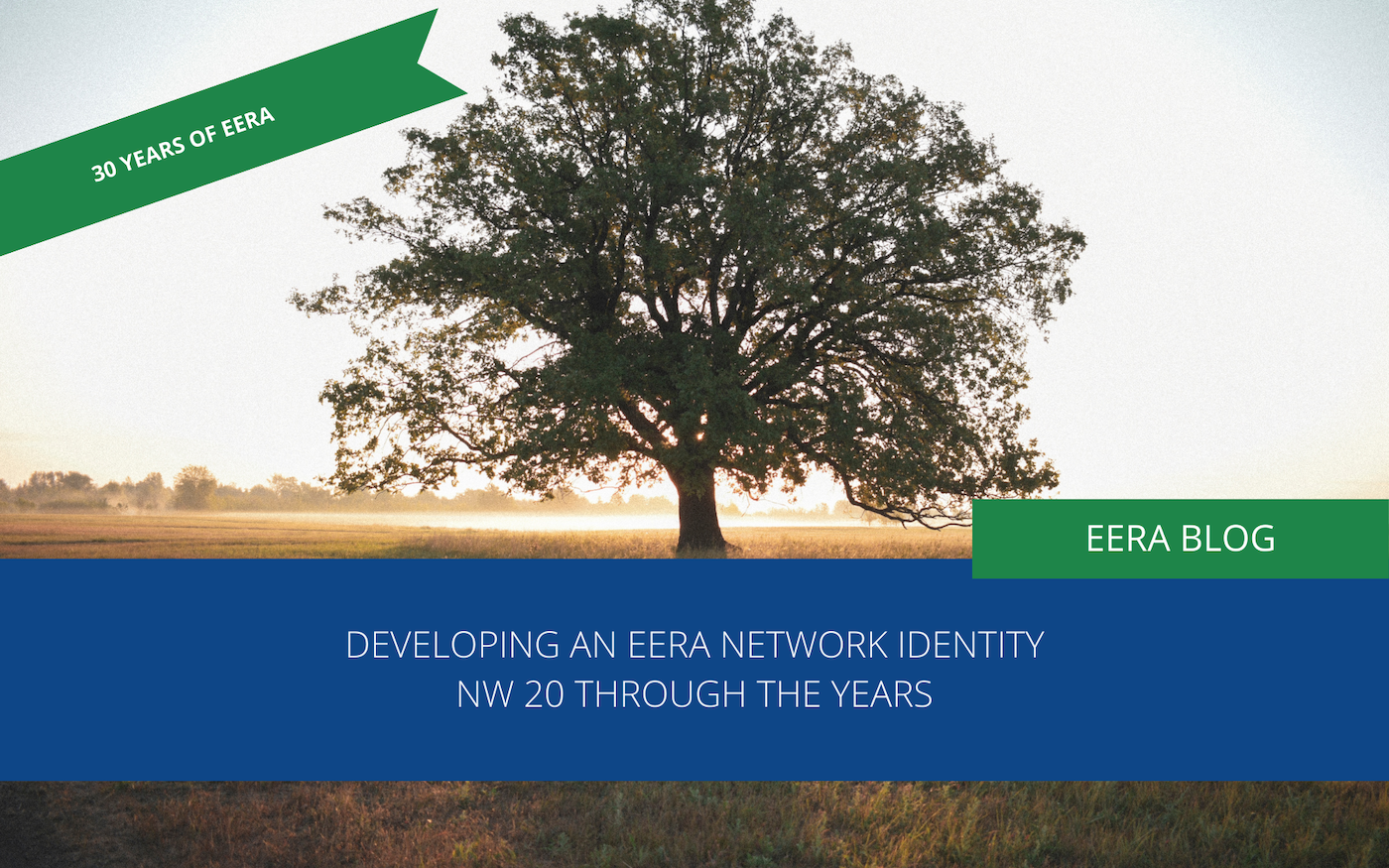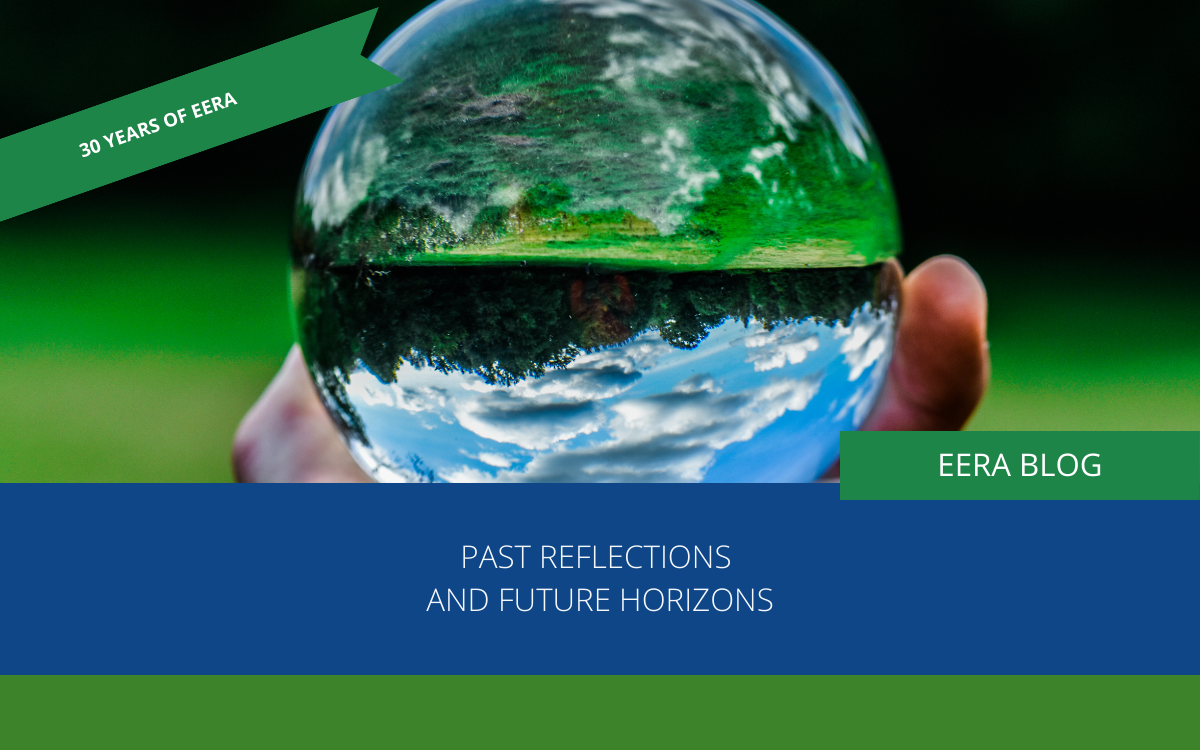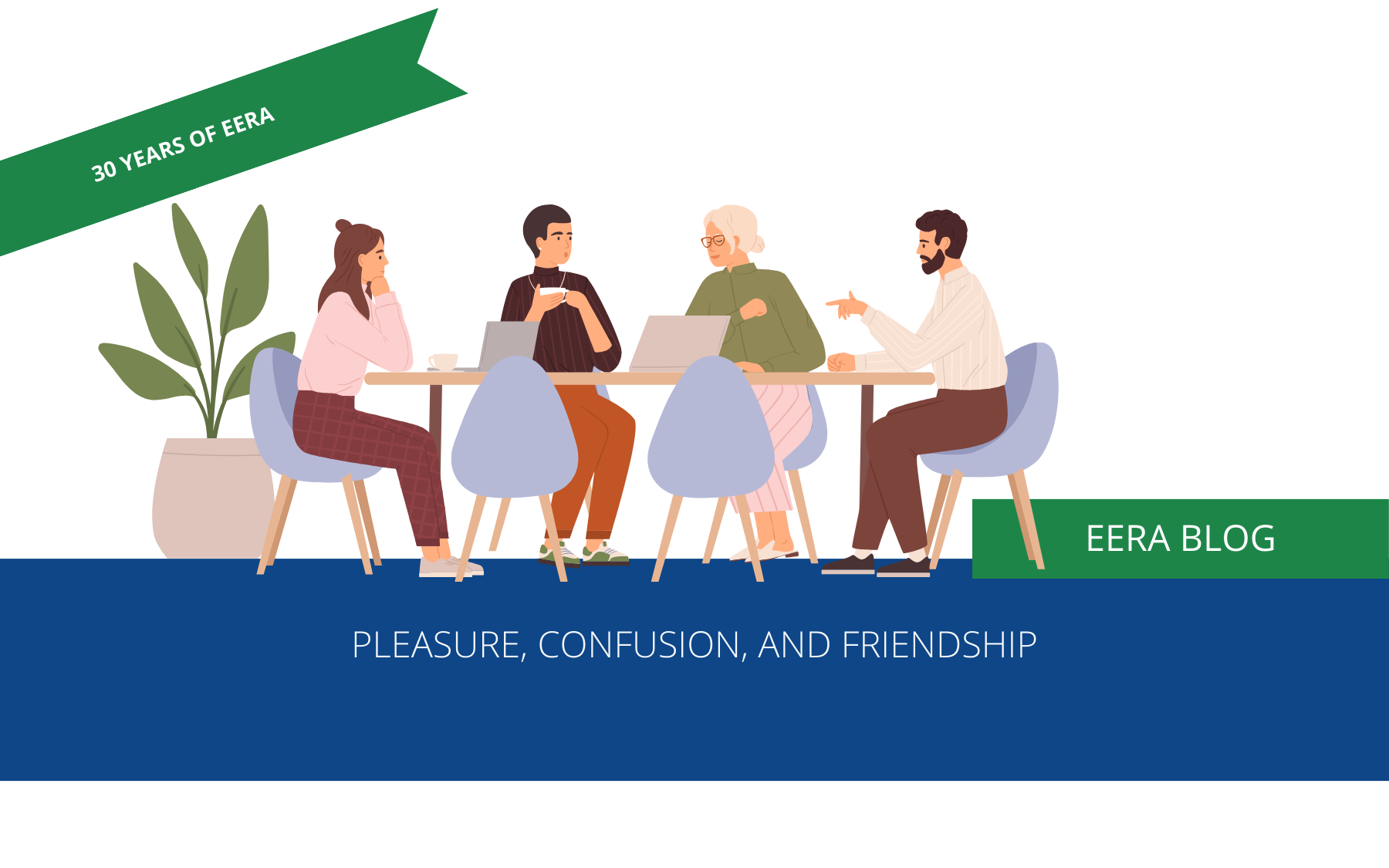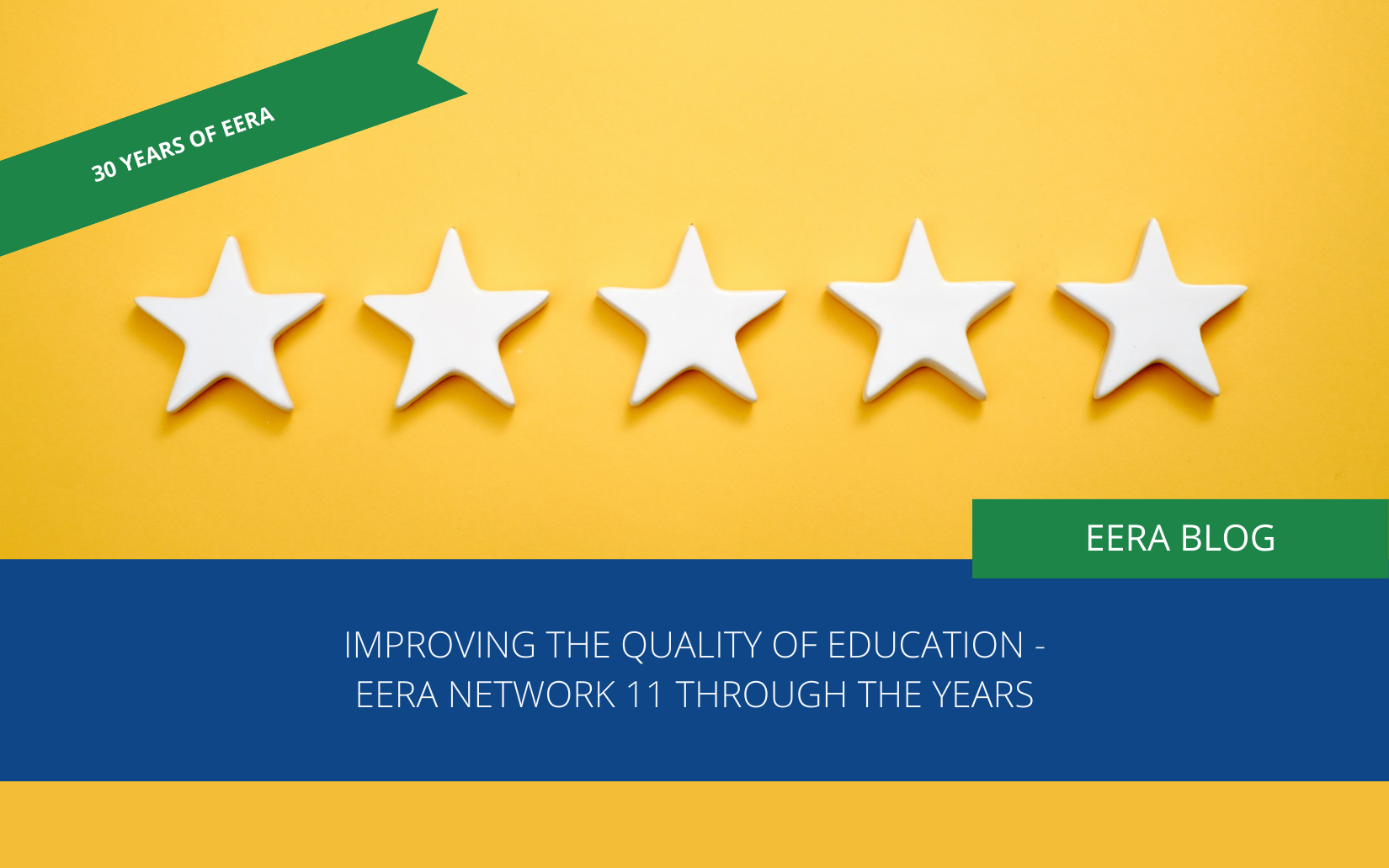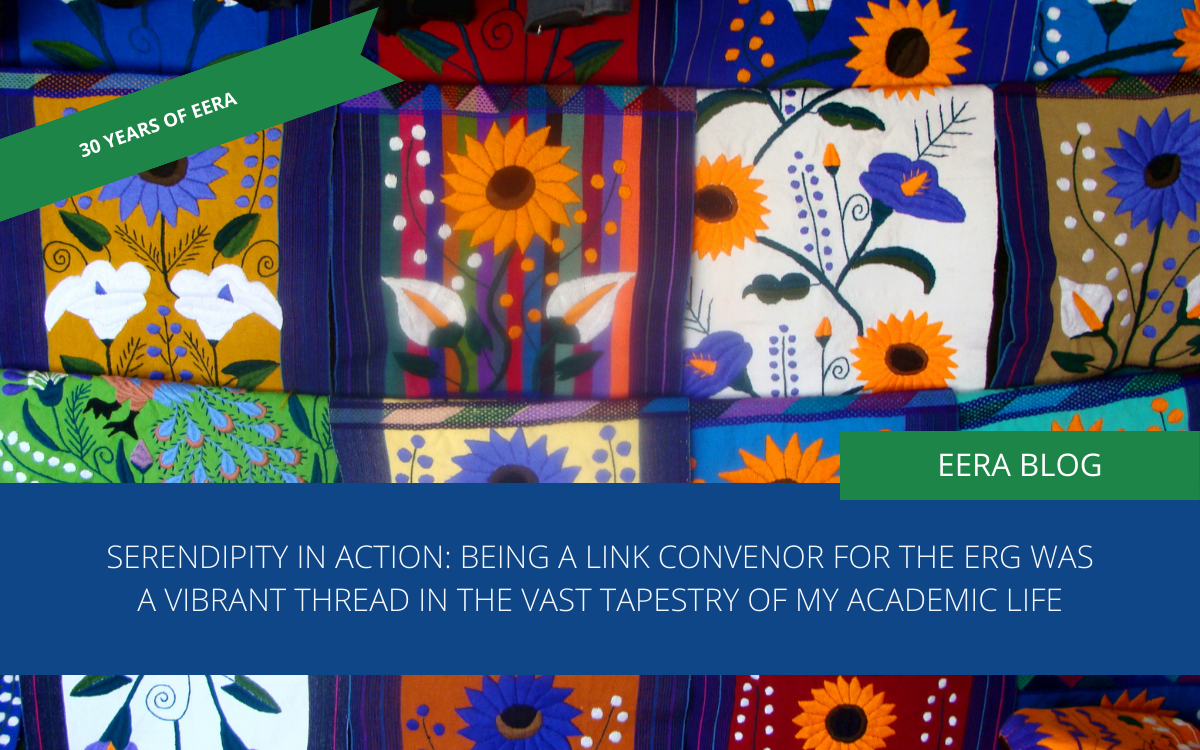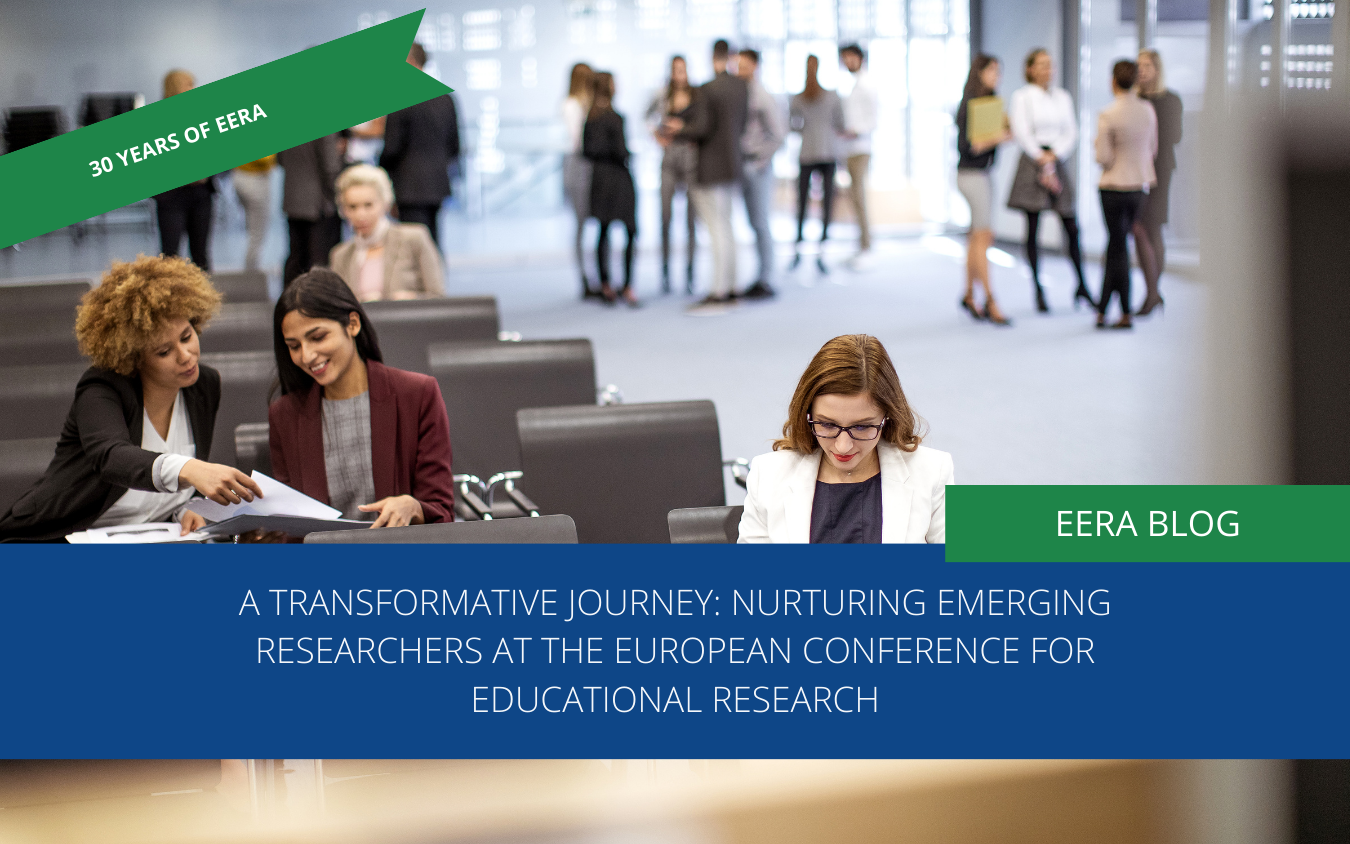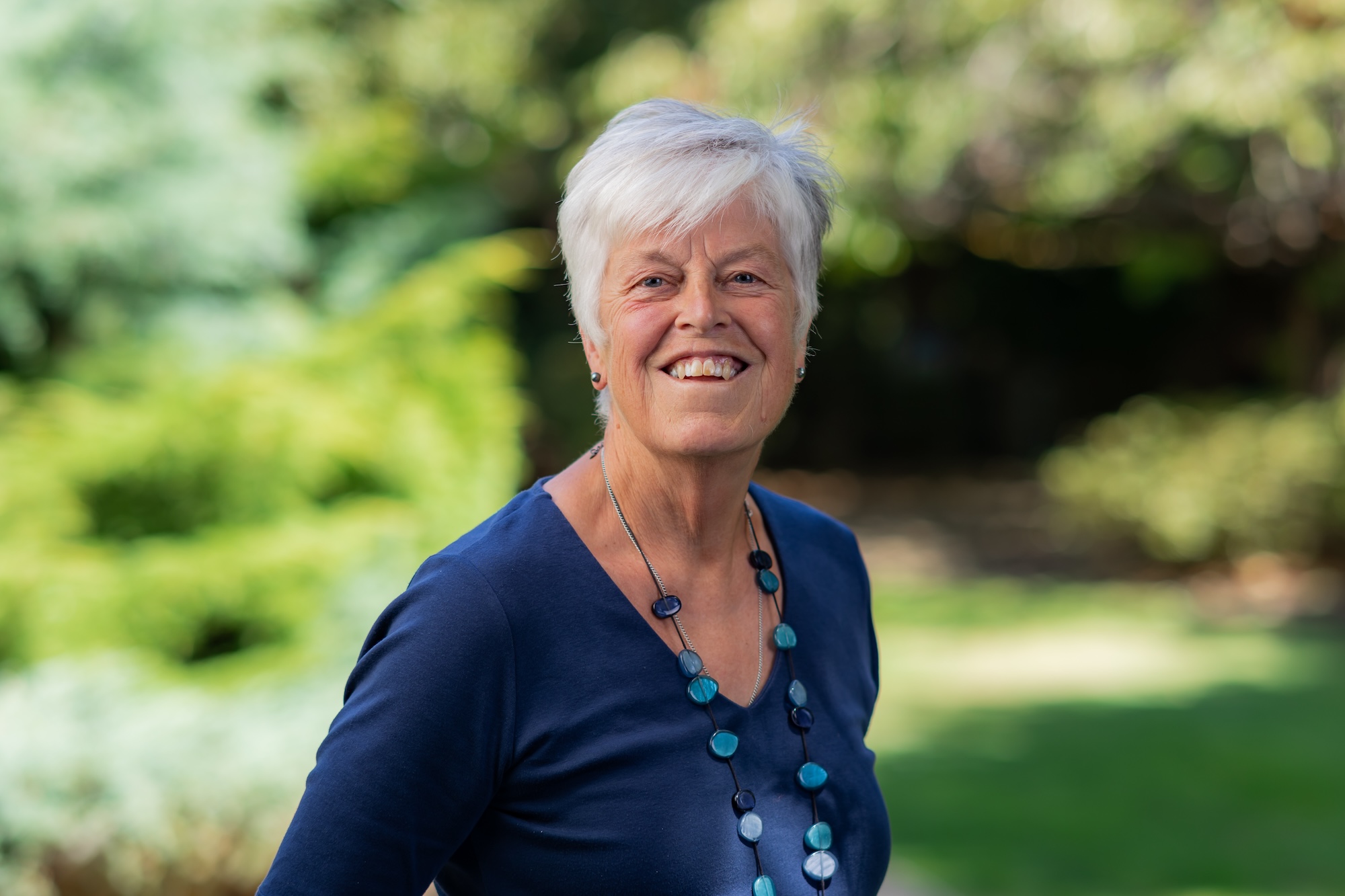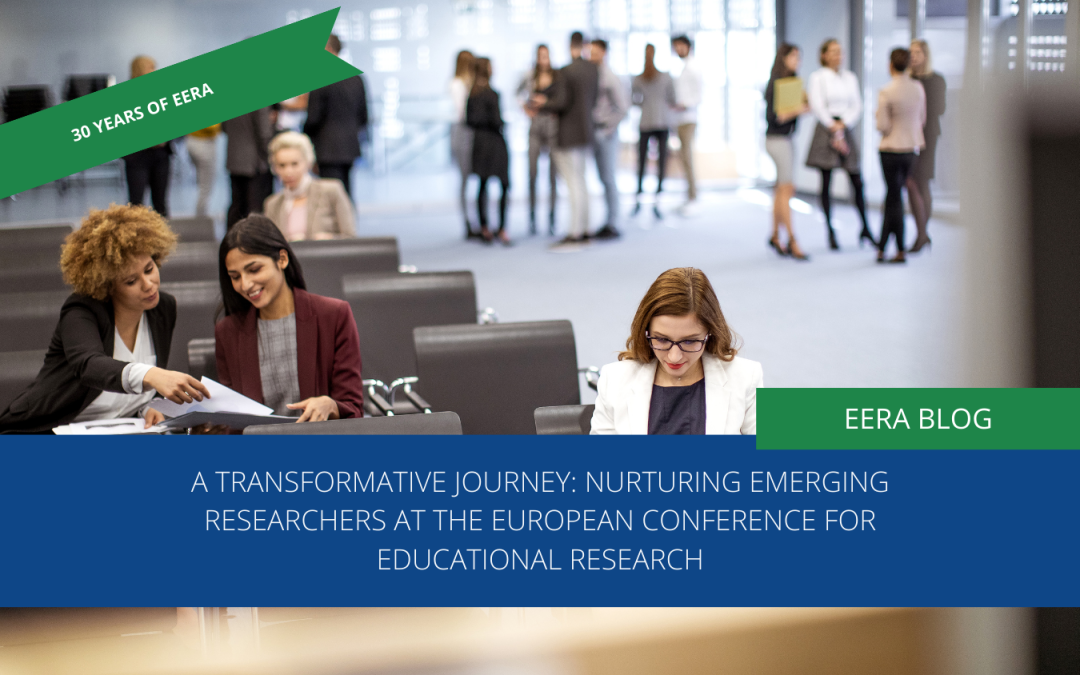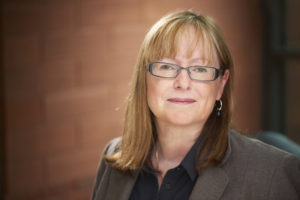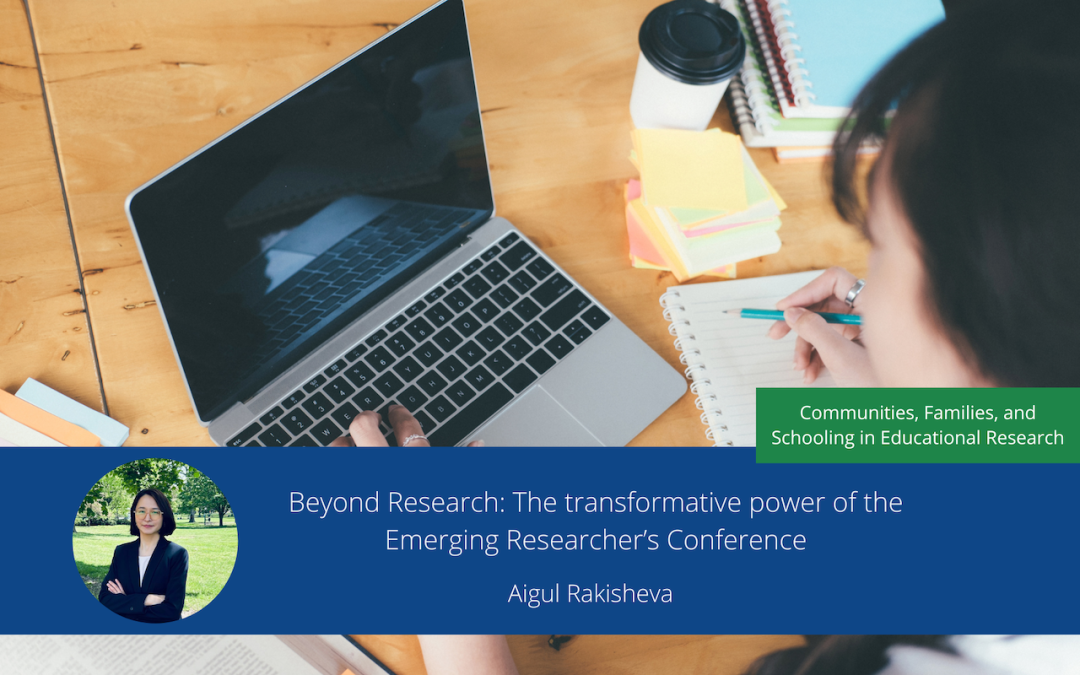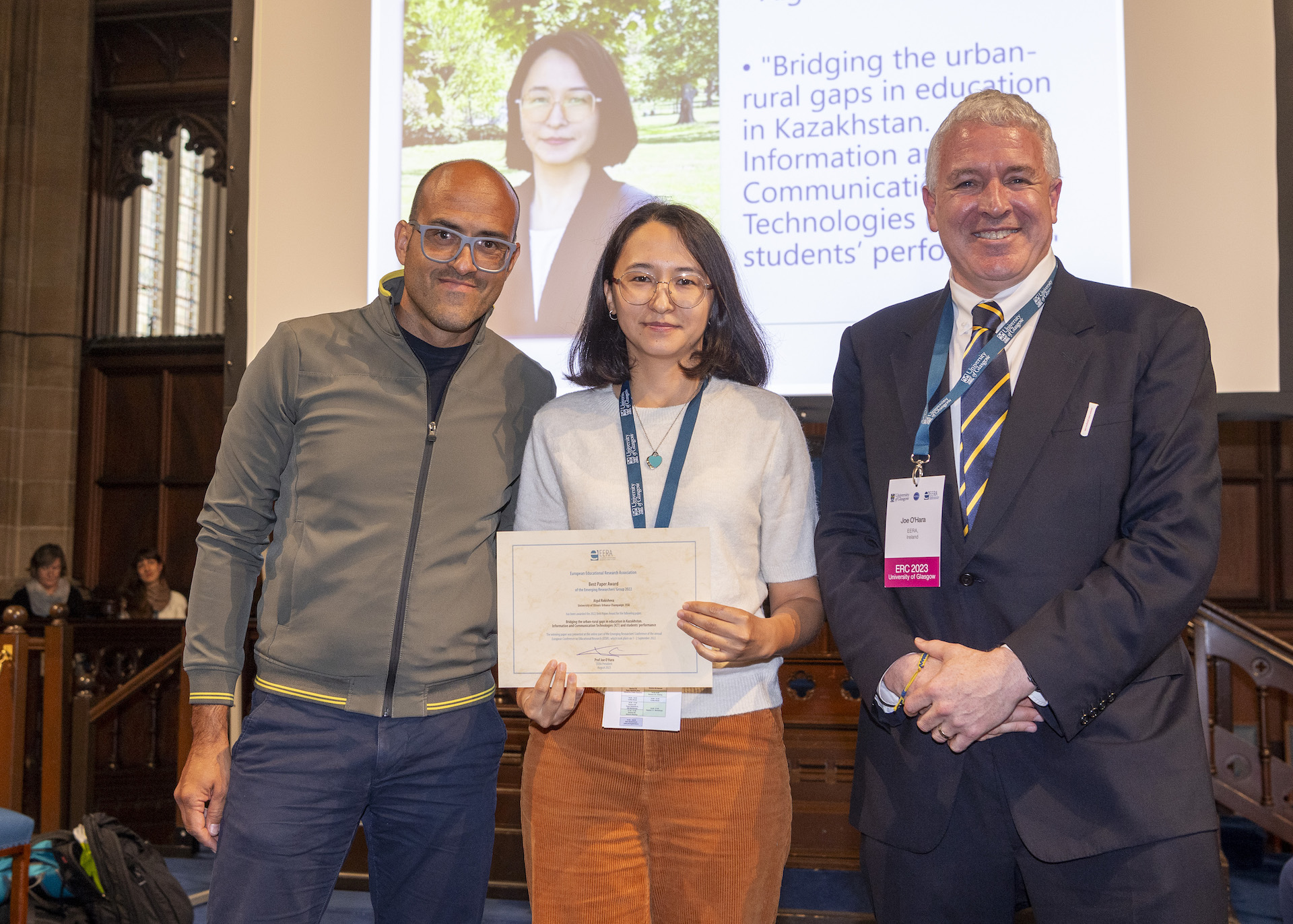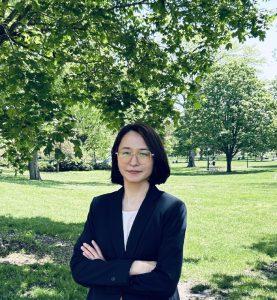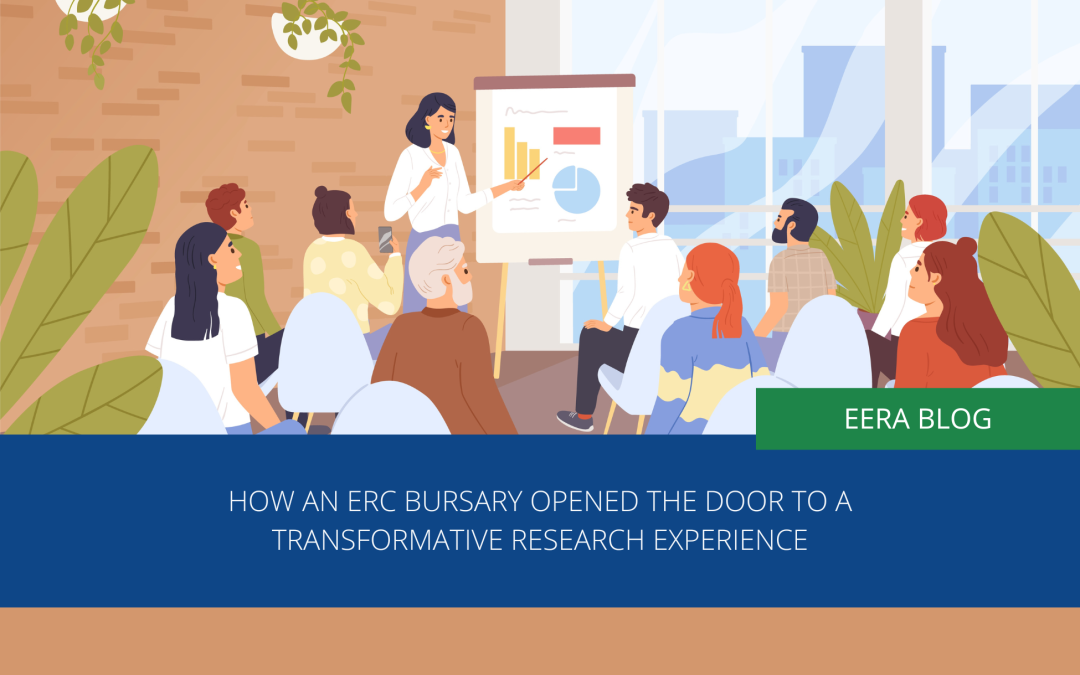
How an ERC bursary opened the door to a transformative research experience
When I received the email confirming that I had been awarded an Emerging Researchers’ Conference (ERC) bursary, I became excited and, at the same time, slightly nervous. As a first-year PhD student in Educational Sciences, I was just beginning to look for my footing in the world of academic research. Indeed, the bursary provided me with the opportunity to attend the Emerging Researcher’s Conference (ERC) and the European Conference on Educational Research (ECER) in August 2024 in Nicosia, Cyprus—an experience that would have been out of reach without this support.
Why this experience mattered
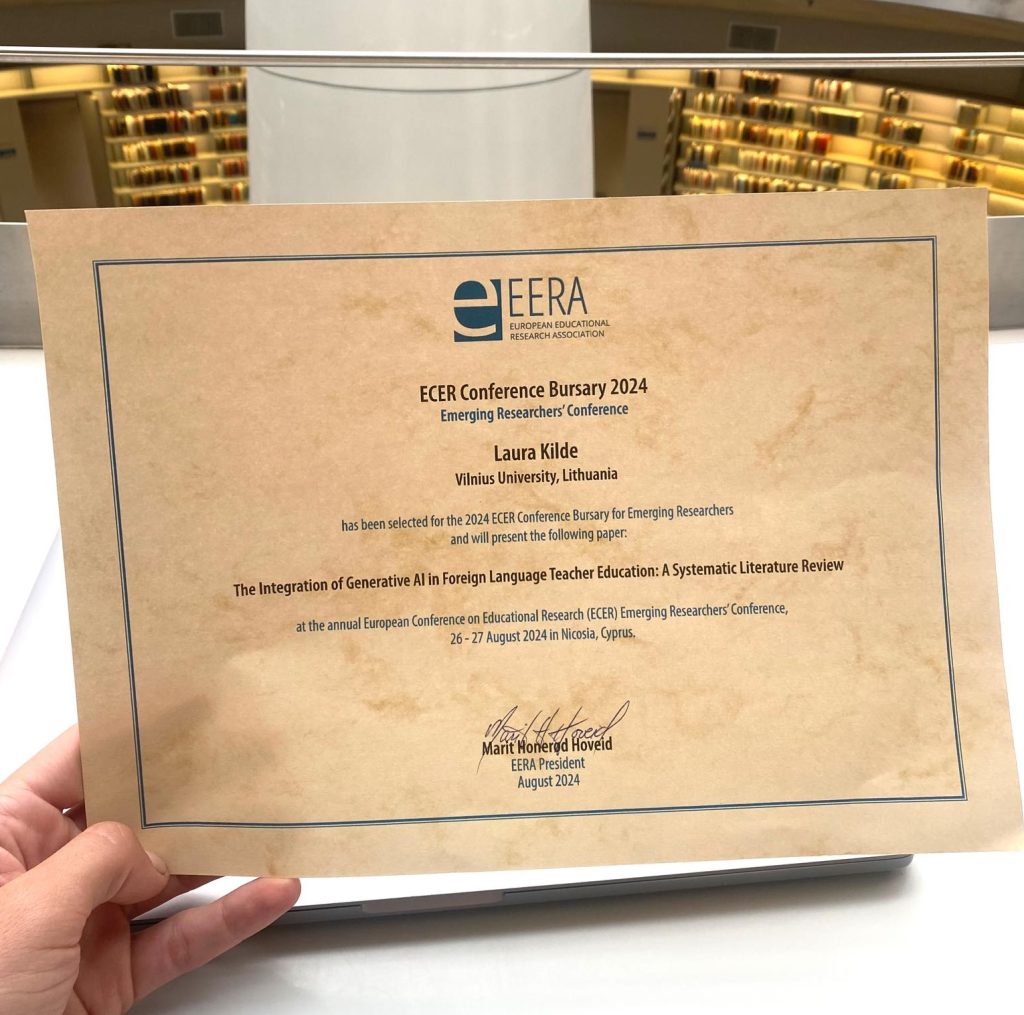
Presenting at a major international conference so early in my PhD journey was both empowering and challenging. I was working intensively on preparing a systematic literature review in order to gain a comprehensive understanding of the existing research in my field. As a result, I delivered my presentation “The Integration of Generative AI in Foreign Language Teacher Education: A Systematic Literature Review” during one of the Emerging Researchers’ sessions. This was my first time presenting my research in such a large and diverse setting. Receiving an abundance of questions made me reflect more deeply on the work I had done and inspired me to make meaningful improvements accordingly.
At the same time, what stood out most was not just the opportunity to speak—but to listen as well. The conference brought together researchers, educators, and professionals from all over Europe and beyond. I had the opportunity to choose freely from a wide range of sessions, where each offered unique insights into different areas of educational research. This diversity introduced me not only to new and unique ideas, but also to different contexts.
Growth beyond the conference room
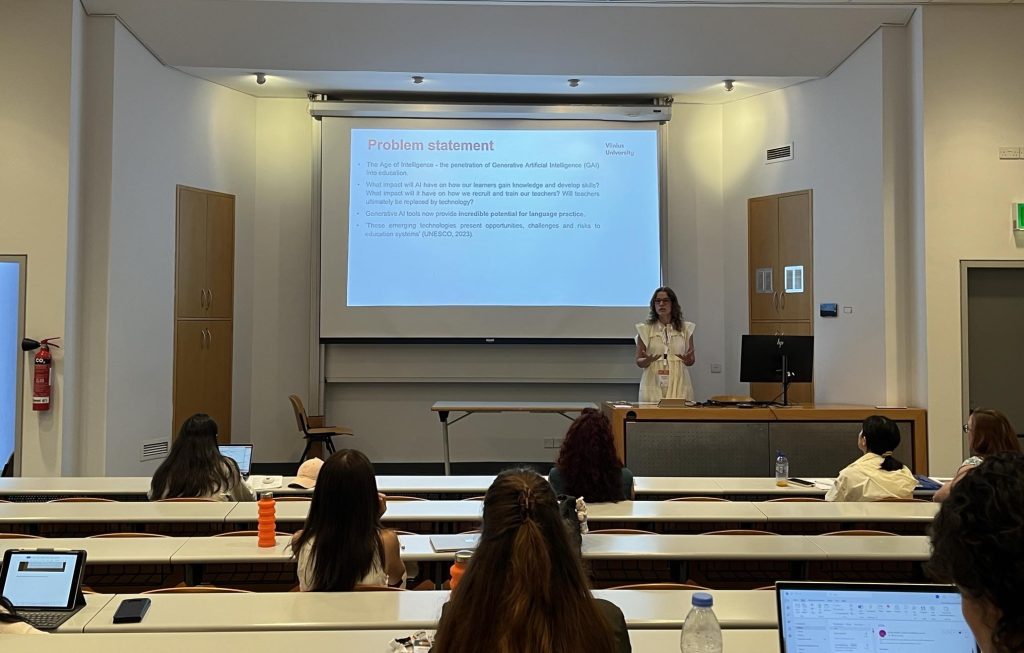
Moreover, I was able to fully immerse myself in the event. I met fellow PhD students, early-career researchers, and experienced academics. We spoke about everything from research methodology to the emotional highs and lows of academic life.
These conversations—whether in formal sessions or over coffee—helped me reflect on my own research. Some discussions sparked new professional and personal interests, while others helped me realise what I did not want to pursue in my work. This growing sense of clarity was just as valuable as discovering new directions. I left Cyprus with a head full of questions, fresh ideas, and a renewed sense of purpose. I realised that some of the most important learning happens in the spaces between presentations: in informal chats, shared doubts, and collective curiosity.
Reimagining my research focus
Back in Lithuania, I continued the conversations I had started at the conference—with my PhD supervisor, university professors, and peers. One key realisation came into focus: I had spent significant time in Rwanda and Kenya, gaining both personal and professional experience, yet this perspective was not reflected in my research.
Listening to presentations and discussions under the ECER 2024 theme “Education in an Age of Uncertainty: Memory and Hope for the Future” made me reflect on how deeply education is shaped by historical, social, and geopolitical contexts. The theme encouraged me not only to acknowledge the complexities and uncertainties of the present but also to draw from past experiences to imagine more hopeful futures. In this light, I recognised the importance of including my African experience—not just as background, but as a meaningful lens through which to explore and reframe my research. It was a powerful reminder that educational research must remain open to multiple narratives, histories, and hopes – especially in a globalised and interconnected world.
With support from my academic community, I revised my original doctoral topic “Educational–Technology Enhanced Self-Directed Learning in Foreign Language Teacher Education”, which initially focused on how digital tools can enhance self-directed learning within the context of foreign language teacher training. However, with support from my academic community, I reshaped the topic to incorporate a broader and more critical perspective. The revised focus—Self-Directed Learning of Future Lithuanian and Kenyan Foreign Language Teachers in the AI Era—still centers on digital technologies but, at the same time, expands to include a comparative, global dimension. This new direction combines my interest in digital technologies with a deeper and a more global understanding of teacher education.
Indeed, the experience at ERC and ECER, including all the variety of presentations, networking, and critical feedback encouraged me to move beyond a Eurocentric perspective and toward a more comparative, interdisciplinary, and globally relevant dissertation topic.
The real impact of the bursary
The ERC bursary made all of this possible. It was not just some financial support—it was a vote of confidence. It allowed me to:
- Present and test my ideas in a professional setting
- Connect with researchers from around the world
- Discover how international education challenges intersect with my own
- Gain the courage to rethink and refine my research direction
Why this matters to others
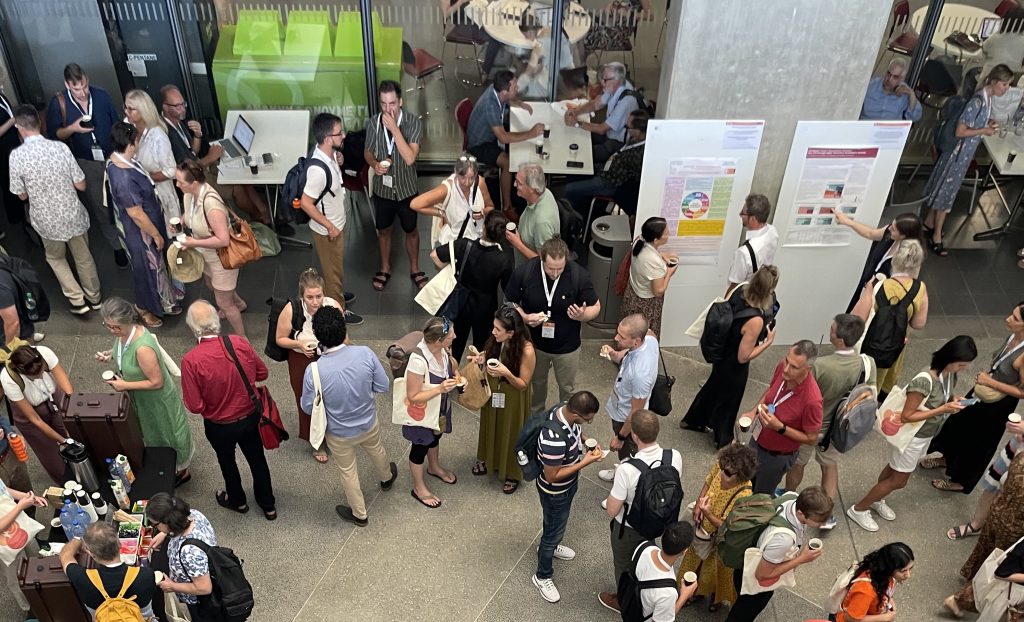
Final thoughts
Key Messages
- Receiving an ERC bursary enabled me to attend and present at ERC/ ECER 2024 in Nicosia, Cyprus—an eye-opening international research experience early in my PhD journey.
- Presenting my first systematic literature review on AI in language teacher education sparked valuable feedback and reflection.
- Conversations with global researchers reshaped my research focus to include my African experiences and explore self-directed learning in Lithuania and Kenya.
- The ERC bursary was more than financial support—it was a transformative boost in confidence, connection, and clarity.
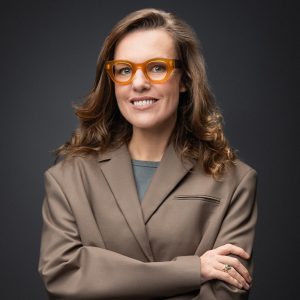
Laura Kildė
PhD candidate, Vilnius University
Laura Kildė is a university lecturer, book author, and founder of foreign language schools. Her research interests include language education, educational technologies with a focus on generative AI, teacher training, self-directed learning, and postcolonial studies. She has worked internationally in France, Spain, Rwanda, Kenya, the UK, and the USA across various roles in education and research.
ResearchGate: https://www.researchgate.net/profile/Laura–Kilde?ev=hdr_xprf
Other blog posts on similar topics:
08 – 09 September 2025 – Emerging Researchers’ Conference
09 – 12 September 2025 – European Conference on Educational Research
Since the first ECER in 1992, the conference has grown into one of the largest annual educational research conferences in Europe. In 2025, the EERA family heads to Serbia for ECER and ERC.
In Belgrade, the conference theme is Charting the Way Forward: Education, Research, Potentials and Perspectives
Emerging Researchers’ Conference – Belgrade 2025
The Emerging Researchers’ Conference (ERC) precedes ECER and is organised by EERA’s Emerging Researchers’ Group. Emerging researchers are uniquely supported to discuss and debate topical and thought-provoking research projects in relation to the ECER themes, trends and current practices in educational research year after year. The high-quality academic presentations during the ERC are evidence of the significant participation and contributions of emerging researchers to the European educational research community.
By participating in the ERC, emerging researchers have the opportunity to engage with world class educational research and to learn the priorities and developments from notable regional and international researchers and academics. The ERC is purposefully organised to include special activities and workshops that provide emerging researchers varied opportunities for networking, creating global connections and knowledge exchange, sharing the latest groundbreaking insights on topics of their interest. Submissions to the ERC are handed in via the standard submission procedure.
Prepare yourself to be challenged, excited and inspired.
08 - 09 September 2025 - Emerging Researchers' Conference
09 - 12 September 2025 - European Conference on Educational Research
Since the first ECER in 1992, the conference has grown into one of the largest annual educational research conferences in Europe. In 2025, the EERA family heads to Serbia for ECER and ERC.
In Belgrade, the conference theme is Charting the Way Forward: Education, Research, Potentials and Perspectives

